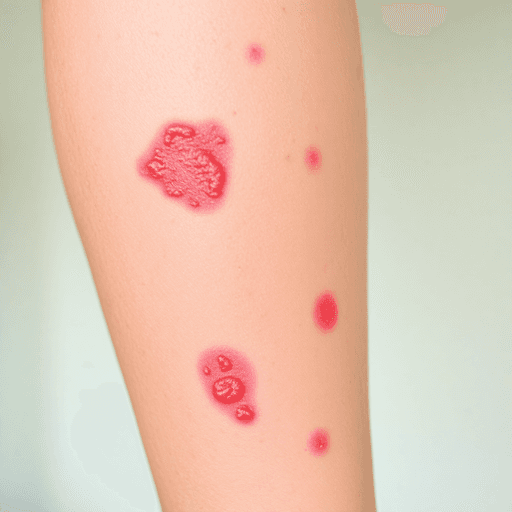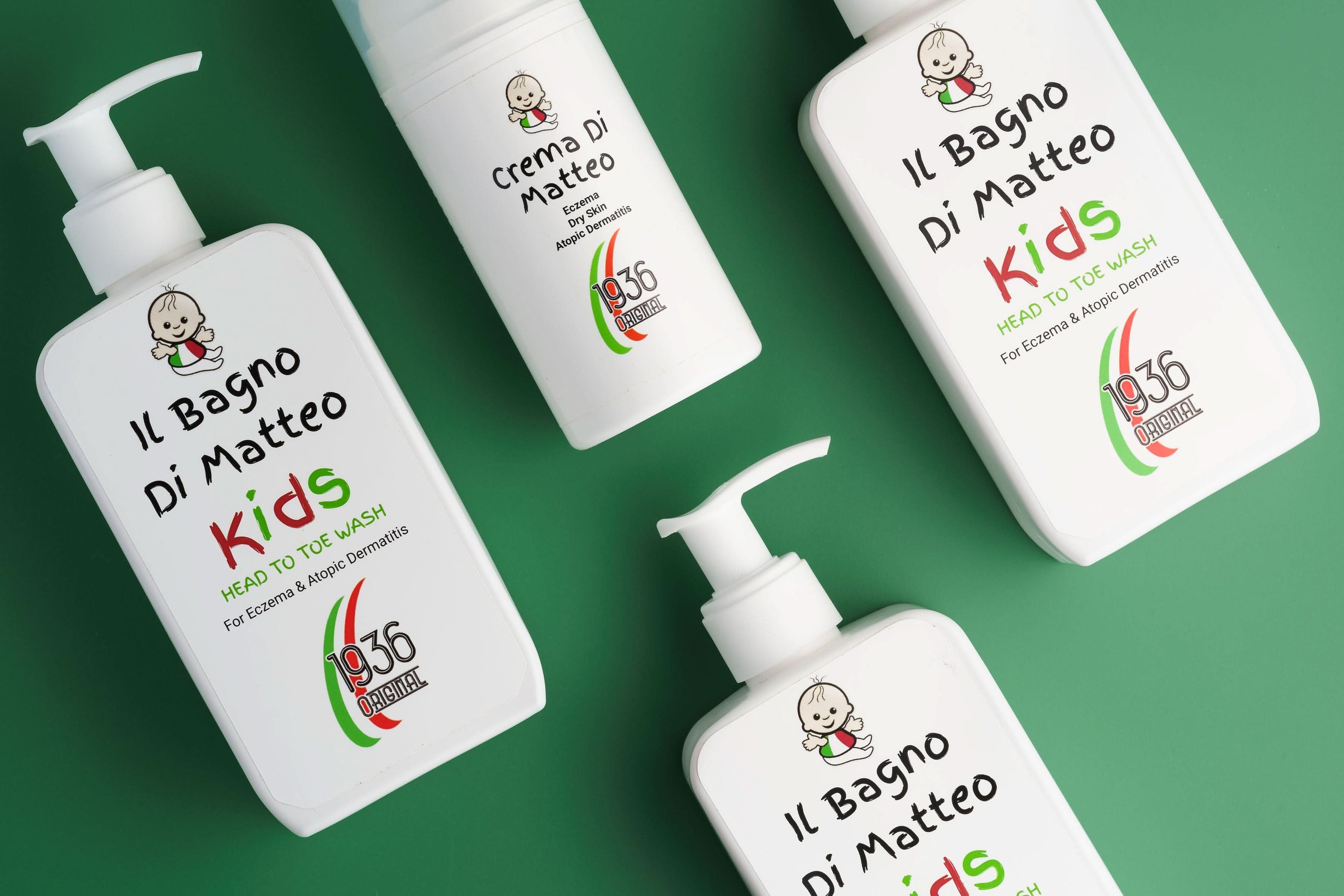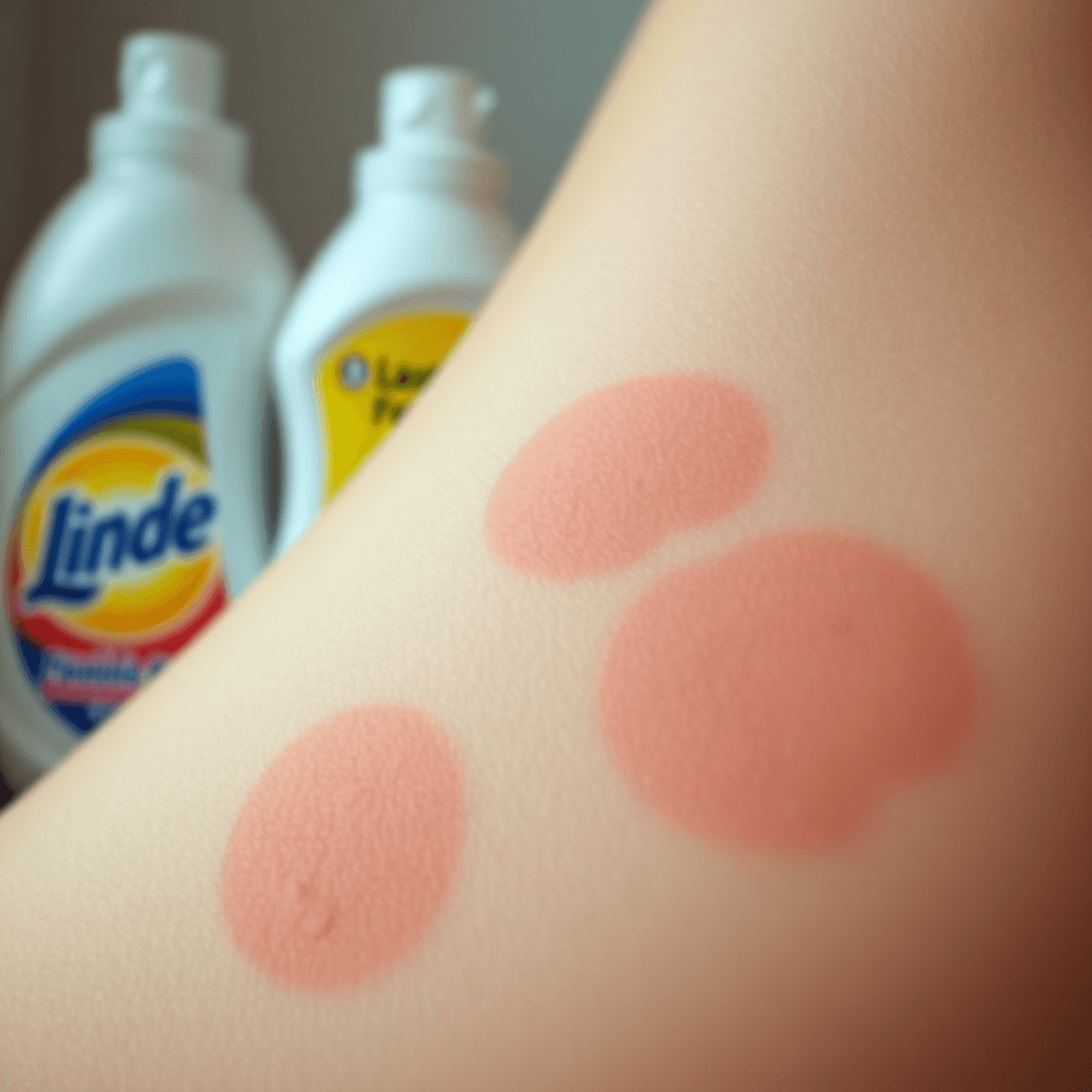Helping Special Needs Children with Eczema: A Comprehensive Guide

Understanding Childhood Eczema
Eczema, particularly atopic eczema, is a prevalent chronic skin condition that often affects children, including those with special needs. Characterised by dry, itchy, and inflamed skin, it can significantly impact a child's quality of life. There are various types of eczema, but atopic dermatitis is the most common in children.
Understanding the common causes and triggers of childhood eczema is crucial for effective management. Potential triggers include:
- Environmental factors like pollen or pet dander
- Certain foods such as dairy or nuts
- Stress or emotional distress
- Sedentary activities leading to overheating
Parents should be vigilant about identifying these triggers to minimise flare-ups.
Symptoms of eczema in children vary and can appear as:
- Red patches on the skin
- Persistent itching leading to scratching
- Dry, scaly skin areas
- Swelling or slight oozing in severe cases
Recognising these symptoms early enables parents to seek appropriate treatment options promptly. Consulting healthcare professionals can help determine the best cream for childhood eczema and other treatment methods to alleviate discomfort. For those dealing with severe childhood eczema, understanding these elements becomes even more critical in providing timely care and improving the child's well-being.
For effective management and relief from symptoms, exploring options such as natural pain relief products specifically designed for conditions like atopic eczema could be beneficial. These products have been trusted since 1936 and offer a range of solutions for managing eczema and other skin problems.
The Emotional Impact of Eczema on Children
Children with eczema often face unique emotional challenges. The persistent itchiness and visible skin changes can lead to feelings of embarrassment and self-consciousness. This discomfort might result in social withdrawal, impacting their interactions with peers.
Importance of Emotional Support:
- Providing emotional support is crucial for both children and parents. Parents need to understand that their child's emotional responses are valid and require attention.
- Supporting parents can be equally important, as managing eczema can be stressful and overwhelming.
Strategies for Communication:
- Openly talking about eczema with children helps in demystifying the condition. Use simple language appropriate for their age to explain what eczema is and why they experience certain symptoms.
- Encourage children to express their feelings about their condition. This dialogue can help them feel understood and supported.
In addition to emotional support, it's also essential to address the physical discomfort caused by eczema. Utilising effective treatments such as the Eczema Cream from 1936 Original can provide relief from the persistent itchiness and dryness associated with this condition. Their products, including eczema treatment creams, are designed to be gentle, drug-free, and suitable for all ages, making them a great option for children suffering from eczema.
By addressing both the emotional aspects of eczema and providing effective physical relief, you create a supportive environment that empowers children to cope better with their condition.
Comprehensive Management Strategies for Eczema
Addressing childhood eczema effectively often involves a combination of medical treatments. Topical steroids are commonly prescribed as the best treatment for childhood eczema. These creams and ointments work by reducing inflammation and itching, providing relief to affected children. It's essential to apply them as directed by a healthcare professional to avoid potential side effects.
In situations where topical treatments are insufficient, oral medications may be considered. These can include antihistamines to alleviate itching or more potent systemic medications for severe cases. However, these options should be carefully evaluated by a healthcare provider due to their stronger effects and potential side effects.
Knowing when to consult a healthcare professional is crucial for managing eczema in children. Indicators that professional advice is needed include:
- Persistent or worsening symptoms despite initial treatment
- Signs of infection, such as redness, warmth, or pus
- Impact on the child's daily activities or sleep
A collaborative approach involving parents, healthcare providers, and sometimes school personnel ensures that each child receives tailored care suited to their unique situation. This team strategy not only addresses the physical symptoms of eczema but also supports the emotional well-being of the child and family.
Daily Skin Care Routines and Managing Triggers
Managing eczema effectively involves establishing a daily skincare routine that prioritises hydration and protection of the skin. For children with special needs, consistency in these routines can significantly reduce discomfort and flare-ups.
Importance of Daily Skincare Routines
A structured daily skincare routine helps maintain skin hydration, preventing the dry and itchy conditions characteristic of eczema. Implementing these routines can be particularly beneficial for special needs children by providing a sense of predictability and comfort.
Best Practices for Emollient Application
- Emollient Application: Apply moisturising cream for eczema multiple times a day, ideally after bathing or washing hands, to lock in moisture.
- Techniques: Use gentle strokes rather than rubbing to avoid irritation. Encourage participation by making it a fun part of the day through games or storytelling.
Recommended Products
For an effective body wash designed specifically for eczema, consider using products like the 1936 Original Body Wash. This product is kid-friendly, drug-free, and has a gentle formula that helps relieve sore, itchy dry skin without drying it out.
Identifying Common Triggers
Understanding what triggers eczema flare-ups is crucial in managing the condition:
- Environmental Factors: Monitor changes in weather or humidity levels.
- Dietary Considerations: Keep track of any food items that might exacerbate symptoms.
- Stress and Anxiety: Emotional stress can worsen eczema; relaxing activities may help mitigate this.
By emphasising daily care and being vigilant about potential triggers, parents and caregivers can significantly improve the quality of life for special needs children with eczema.
School Support, Care Plans, and Coping Strategies at Home and School
Creating an individualised care plan is vital for children with eczema in school settings. These plans, often part of a 504 Plan, ensure that necessary accommodations are made to address the child's unique needs. This plan acts as a blueprint for managing eczema during school hours, outlining treatment protocols and specific strategies to handle flare-ups.
Teachers and school nurses play a crucial role in implementing these care plans. They help monitor the child's condition during school activities, ensuring that any signs of discomfort are addressed promptly. Their understanding of eczema's impact on concentration and behaviour enables them to provide better support.
To manage itching and prevent scratching behavior, effective distraction techniques can be utilised both at home and school. Some strategies include:
- Engaging children in activities that require the use of both hands, like playing with clay or building blocks.
- Providing stress relief toys such as fidget spinners or stress balls.
- Encouraging participation in school activities that foster engagement and focus.
Developing these strategies not only helps alleviate physical discomfort but also empowers children to participate more fully in their educational experience.
Encouraging Self-Care Participation, Sleep Hygiene Practices, Resources, and Support Networks
Encouraging children to take part in their own care routines can significantly improve their self-management skills. Introducing fun activities or games can make applying emollients an engaging task. For example:
- Storytelling: Create a story where the child is a superhero who needs to apply special creams to keep their skin powers strong.
- Reward Charts: Use stickers or points that accumulate towards a small reward for consistently applying their emollients.
Good sleep hygiene practices are crucial for managing eczema symptoms during the night. Establishing consistent bedtime routines helps in reducing nighttime itching and promoting restful sleep. Key practices include:
- Maintaining a cool, comfortable bedroom environment.
- Engaging in calming pre-bedtime activities such as reading or listening to soothing music.
- Limiting screen time before bed to avoid overstimulation.
Parents and children dealing with eczema can benefit from numerous resources that provide information and community support. Some recommendations include:
- Books: Look for children's books that explain eczema in simple terms, helping them understand their condition better.
- Online Communities: Join forums or social media groups where parents share tips and experiences about managing eczema.
Building a network of support not only provides valuable insights but also fosters a sense of community for both parents and children navigating life with eczema.
Conclusion
Helping special needs children with eczema requires a comprehensive approach that includes medical care, emotional support, and proactive management strategies. It is essential to involve healthcare professionals to ensure that your child receives personalised treatment options that cater to their specific needs.
Building resilience is crucial for special needs children with eczema. Encourage them in their daily activities, highlighting the importance of self-care and emotional well-being. Creating a supportive network of family members, educators, and medical professionals fosters an empowering environment where children can thrive despite the difficulties brought on by eczema. Although managing eczema can be challenging, your child can live a comfortable and fulfilling life with the right resources and support systems.
FAQs (Frequently Asked Questions)
What is childhood eczema and how does it affect children?
Childhood eczema, particularly atopic eczema, is a prevalent chronic skin condition that causes inflammation, redness, and itching. It can significantly impact a child's daily life, leading to discomfort and affecting their ability to participate in activities.
How does eczema emotionally affect children?
Children with eczema often face unique emotional challenges, including feelings of embarrassment or isolation due to their visible skin condition. This can lead to anxiety or low self-esteem, making emotional support essential for their overall well-being.
What strategies can be used to communicate about eczema with children?
Openly talking about eczema with children helps demystify the condition. Using age-appropriate language and encouraging questions can foster understanding and reduce fear, allowing children to feel more comfortable discussing their experiences.
Why is a daily skincare routine important for managing eczema?
A structured daily skincare routine is crucial for maintaining skin hydration and preventing flare-ups. Regular application of emollients helps keep the skin moisturised and reduces the severity of symptoms associated with eczema.
What are common triggers for eczema flare-ups?
Identifying common triggers such as allergens, irritants, temperature changes, or stress is crucial in managing childhood eczema. Understanding these triggers allows caregivers to create strategies to minimise exposure and prevent flare-ups.
How can schools support children with eczema?
Creating individualised care plans in collaboration with schools is vital for supporting children with eczema. This includes educating staff about the condition, ensuring access to necessary skincare routines during school hours, and fostering an inclusive environment.












